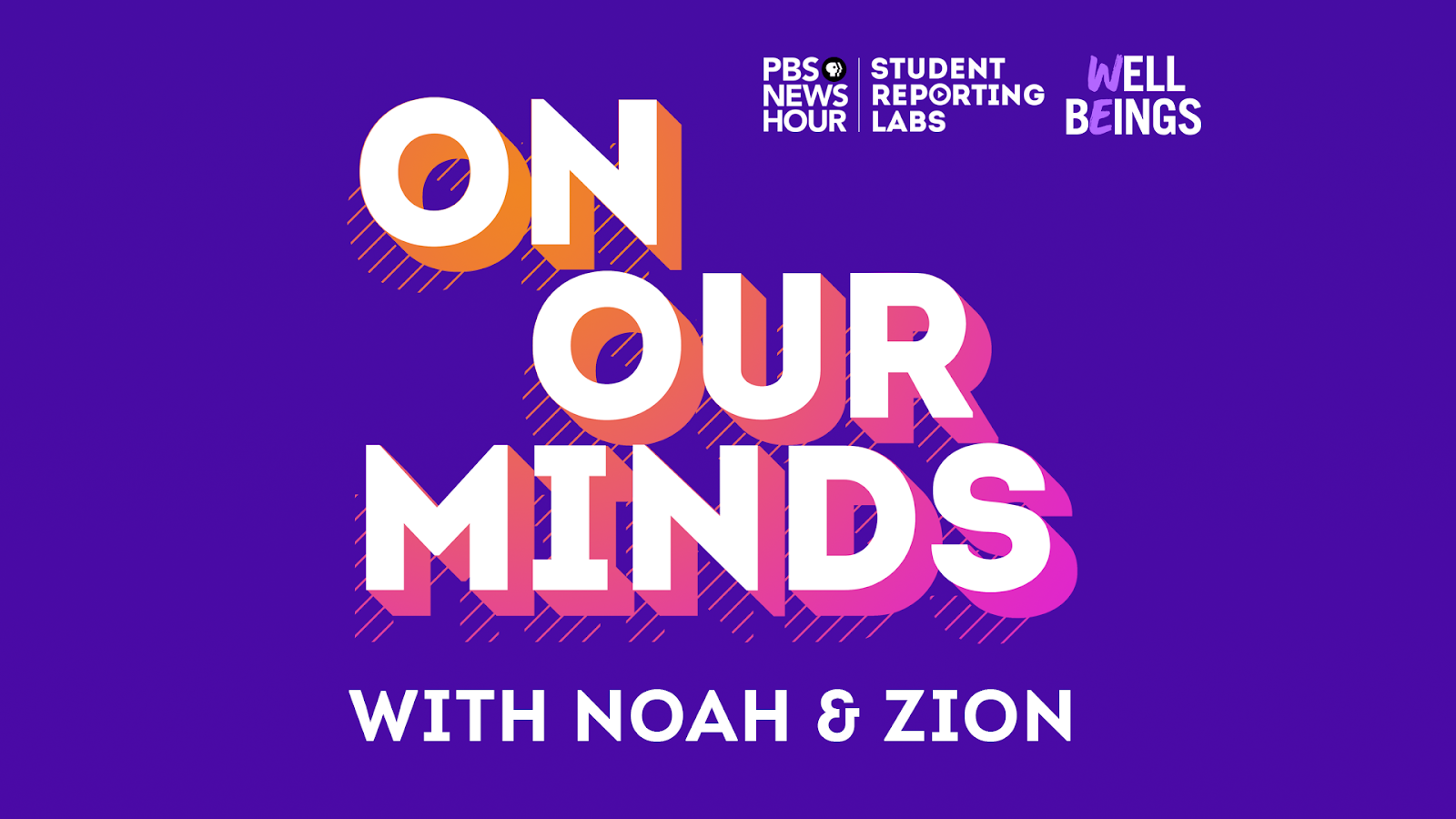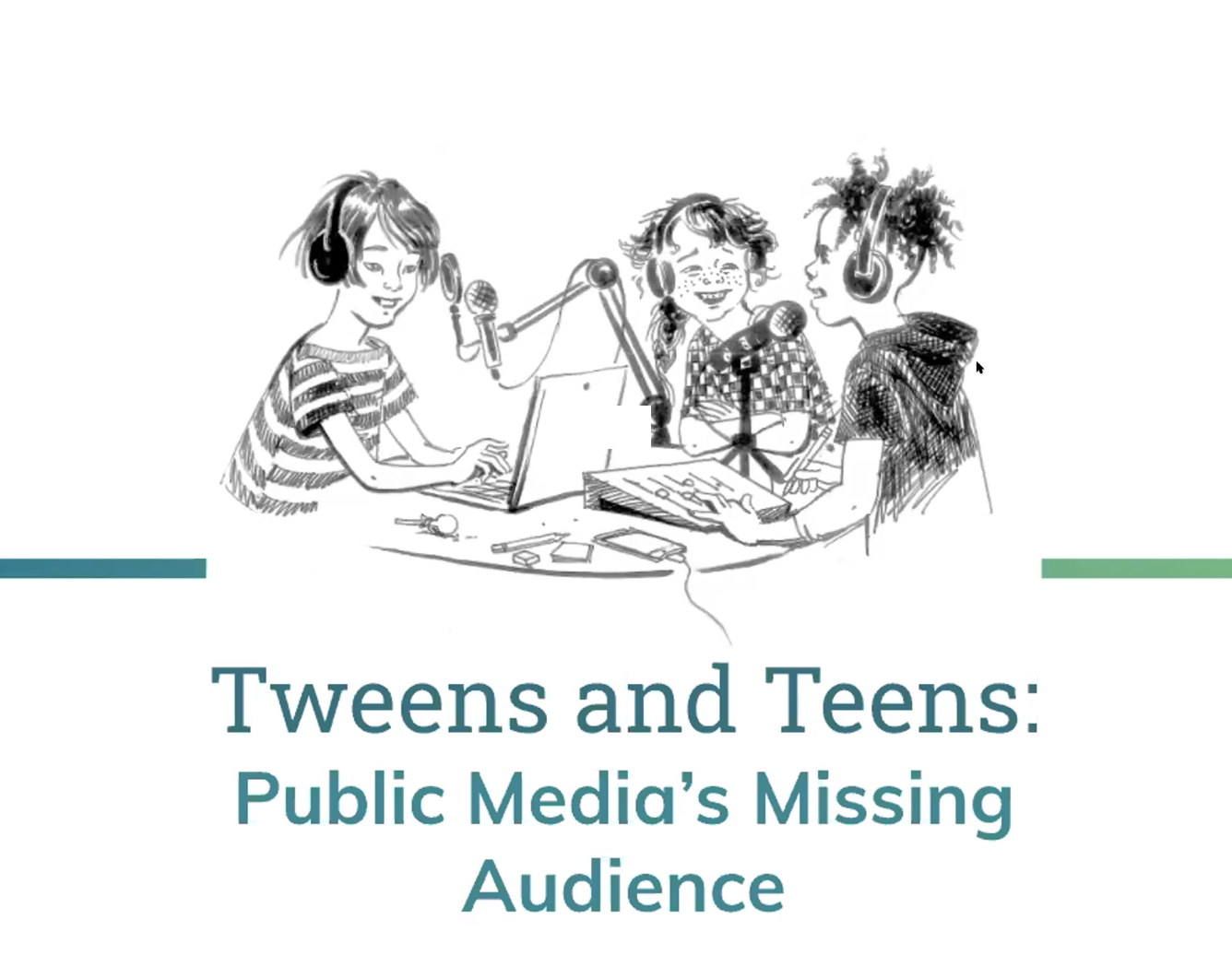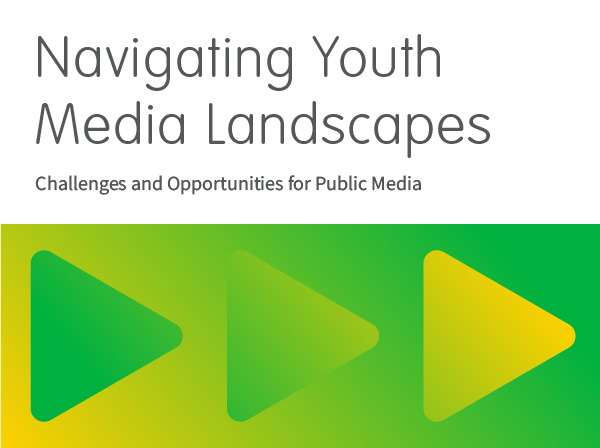The following post is part of a series springing from the Cooney Center’s joint initiative with the Corporation for Public Broadcasting, By/With/For Youth: Inspiring Next Gen Public Media Audiences. This is a project aimed at exploring the role of public media in the lives of young people by taking stock of the current landscape and imagining a future that public media can build alongside teens and tweens. With that in mind, we are inviting public media practitioners who are already experimenting and exploring with young audiences to reflect on their experiences and share their perspectives. We hope these posts will spark conversation, provide direction and resources, and raise up examples of the innovative work that public media stations across the country are creating to engage the next generation.
In 2016, our Education Department at PBS Wisconsin was in a period of reinvention. We decided that we wanted to go beyond creating high-quality classroom media for young people by supporting and empowering young people to create their own media as well.
The goals seemed straightforward enough: 1) Support youth as they create media, 2) Use PBS Wisconsin platforms to share youth media, 3) Celebrate youth media. But what form should that take? Would we serve students directly, or work on providing resources to teachers? Would we run workshops in schools, or train educators to be better media instructors in their communities? As a relatively small team, we had to think hard about how resources could be matched with needs in a way that was novel, sustainable, and scalable.
Listen and Learn
Starting out, we wanted to create all our own video production resources and tutorials. But we quickly realized that PBS Newshour Student Reporting Labs (SRL) already had award-winning resources—much like the ones we were imagining—that were already free for educators and students. Want a video on capturing b-roll? On lighting? SRL has that!
So instead, we focused our effort on learning and implementing their resources, and building a relationship with the talented producers at SRL. We listened, we asked questions, and we learned from their years of experience working with students and teachers.
The partnership between our department and the established SRL initiative was a real opportunity for us. It felt like public media at its best: member stations working together to leverage each other’s work and experience in service to local communities. And that’s what we wanted to do: be additive to what SRL was offering with attention to the unique needs in Wisconsin.
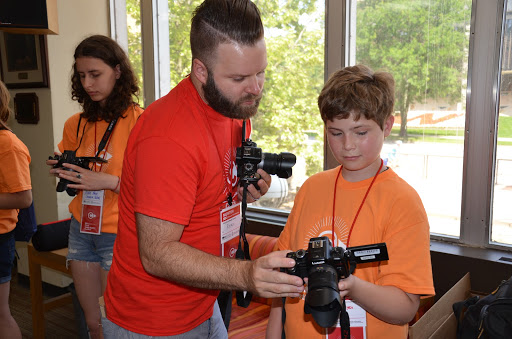
In an effort to better understand the needs of Wisconsin teachers, we spoke to 13 educators about SRL and spent the next school year traveling to each of their classrooms, offering workshops, and listening to teachers and students to support a community of practice around youth media.
Find Partners and Build on Station Assets
Once we had enough evidence from our year of listening to Wisconsin teachers about what we might add to SRL, we started to offer different threads of station support, including preparing for a unique summer immersion program. Our station is positioned within the University of Wisconsin-Madison, and we found a powerful partner for these efforts in the UW-Madison School of Education. Dr. Rich Halverson and Dr. Erica Halverson helped us lay the groundwork to expand our support to teachers and students by co-creating the concepts with us and connecting us with several doctoral students. Those doctoral students worked with PBS Wisconsin Education producers to support teachers, offer workshops in schools, offer feedback to students about their work, and help us extend the reach of our growing community. We called our partnership with the UW-Madison School of Education “Click Youth Media”.
As Click grew, we also began to involve staff throughout the PBS Wisconsin station. One of our most popular offerings was our field trips where teachers could bring their digital journalism classes on a full-day tour of the station. Students met producers, animators, set designers, and journalists, and learned about potential careers in media. They went behind the scenes of live recordings and got to sit on working television sets.
Our colleagues appreciated having the Education department coordinate the logistics, freeing them to arrive and share their passion and their work. And they loved the passion and excitement of the students and appreciated the opportunity to meet with an audience from across the state in a way that was new and inspiring.
By partnering, drawing on national programmatic expertise from SRL, and inspiring our local station professionals to lend their time, our Education department was able to amplify our efforts and reach an ever-larger community.
Find Your Niche
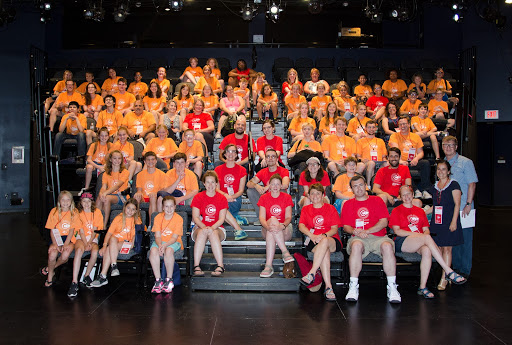
In 2018 we expanded this model when we brought over 40 youth and their teachers to Madison for a one-day immersive video production experience, the Click Youth Media Festival. We had story prompts, mini-workshops on b-roll lighting, and interview tips; we had mentors who would accompany students around campus to get interviews; we had computers set up for editing; we even had a theater ready for a celebratory viewing of student work.
When it was over, we sat, exhausted and wondering: how in the world could we scale this?
Afterward, we heard from teachers that while they had a rewarding experience, they wished they felt more confident in their own video production skills so they could have helped their students to do even more, and so they would be able to support video production in their own classrooms.
This reflection changed everything.
The next summer, inspired by this comment and the train-the-trainer model, we launched the Click Teacher Summer Camp. We realized that instead of directly training 30 or so students each summer, that we could expand the learning by magnitudes if we trained 30 or so teachers, and those teachers went back to their classrooms and trained 30 or so students each year. If done sustainably, year after year, we would soon have a whole community dedicated to youth media making!
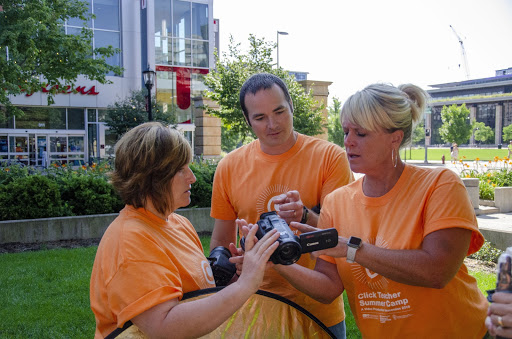
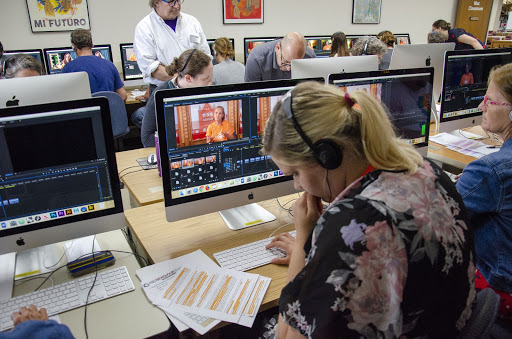
Our immersive, three-day video production experience included guidance from our SRL colleagues and purposeful workshops where PBS Wisconsin staff shared their expertise with teachers without being overburdened to create slideshows or handouts. Importantly, we also focused on networking between teachers as part of an effort to build a year-round community of youth media educators in Wisconsin. As one attendee put it, “I have never attended a [professional development] session that was so built around relationships…You did a phenomenal job modeling the strategies that you presented to us and I plan on taking those with me back to my school. The mentoring by PBS Wisconsin and SRL staff was key in the success of this… THANK YOU! THANK YOU! THANK YOU!”
With this model, we feel that we’ve found our niche. For us, empowering youth voice means supporting teachers.
Where do we go from here?
Plans for the second in-person Click Teacher Summer Camp in the summer of 2020 were scuttled by the pandemic. During the summer of 2021, we will embark on a new adventure, offering a Virtual Click Teacher Summer Camp. There are many unknowns about the virtual model, but if it’s successful, Click would have an even greater reach, helping to bring quality media education to young people all across the state.
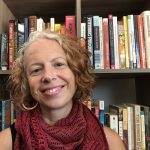 Jessie Nixon is an Education Engagement Specialist at PBS Wisconsin Education focused on 3rd- through 12th-grade content. She supports connections among educators in Wisconsin with a strong emphasis on youth video production and media literacy. Before working at PBS Wisconsin, Jessie taught high school English and college-level composition and education courses. She graduated from the University of Wisconsin-Madison with a Ph.D in Curriculum and Instruction specializing in Digital Media.
Jessie Nixon is an Education Engagement Specialist at PBS Wisconsin Education focused on 3rd- through 12th-grade content. She supports connections among educators in Wisconsin with a strong emphasis on youth video production and media literacy. Before working at PBS Wisconsin, Jessie taught high school English and college-level composition and education courses. She graduated from the University of Wisconsin-Madison with a Ph.D in Curriculum and Instruction specializing in Digital Media.
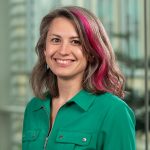 Megan Monday serves as the Executive Producer at PBS Wisconsin Education. Megan works with a team of producers who make classroom media for Wisconsin teachers and learners, and she supports the youth media initiatives at the station.
Megan Monday serves as the Executive Producer at PBS Wisconsin Education. Megan works with a team of producers who make classroom media for Wisconsin teachers and learners, and she supports the youth media initiatives at the station.
